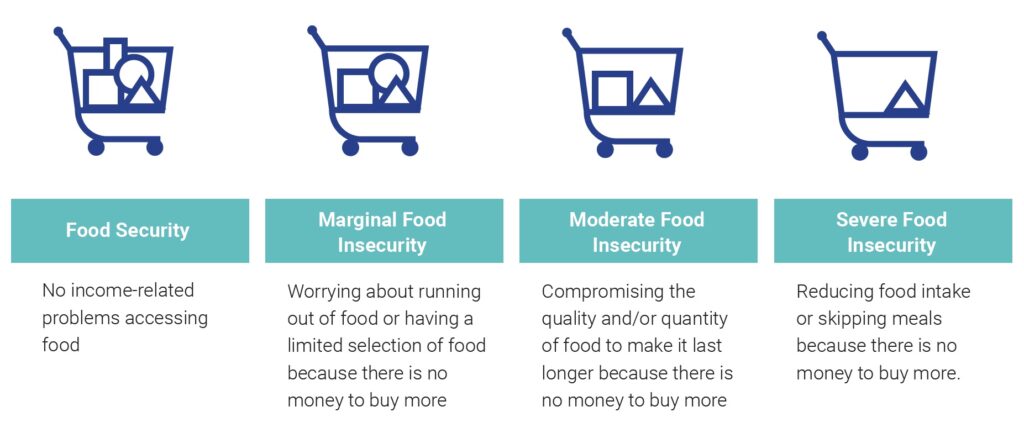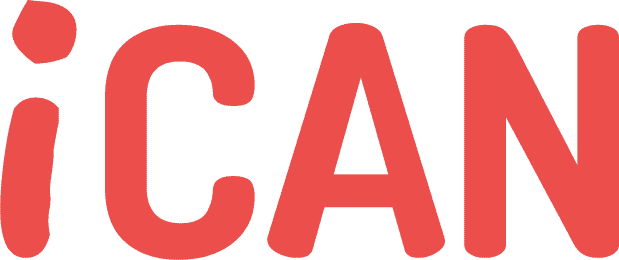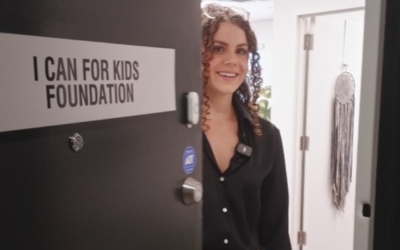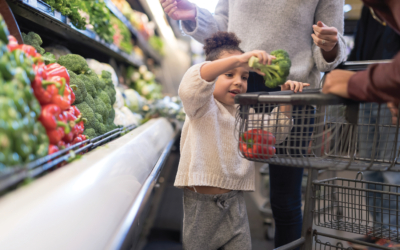Updated April 4, 2024
For decades, our society has focused on the growing rates of hunger across our country. This perspective has naturally inspired charities to help resolve the observable struggle by donating food to hungry people. That’s why I Can for Kids (iCAN) originally offered free food packs to hungry children across Calgary. But after a few short years, we recognized that the real issue isn’t a lack of food but a lack of income. Hunger is just the tip of the iceberg. Filling a belly is never the same as nourishing a body, heart, and mind.
What’s the difference between hunger and food insecurity?
We all know what hunger feels like yet most of us have no experience of food insecurity. Hunger is simply the gnawing physical sensation that consumes all your attention when you haven’t had enough to eat. It’s certainly true that some food-insecure people ‘go hungry’ for periods of time when they don’t have money to buy food. However, research shows that persistent hunger is neither the most common nor the worst struggle that food-insecure children and households experience.
Food insecurity is caused by inadequate income and includes a range of complex psychological struggles rooted in ongoing deprivation, emotional distress, poor health, and societal judgment. While hunger is transient, food insecurity persists until financial resources become sufficient. Food-insecure children face constant anxiety, a reduced sense of belonging, and diminished well-being. Hungry or not, their families invest a lot of energy to hide the intense isolation, shame, and emotional hardship they endure while trying to survive on too little income to meet all their basic needs.
What are the symptoms of food insecurity?
In Canada, we measure and define food insecurity into three categories of increasing severity. The figure below from the most recent Dietitians of Canada position statement depicts the pattern of symptoms across the different levels of food insecurity:

Retrieved from: Dietitians of Canada, 2024. Dietitians of Canada Position Statement on Household Food Insecurity in Canada, Dietitians of Canada.
Research demonstrates a strong link between all categories of food insecurity and negative health and social outcomes, regardless of whether or how often a person ever experiences hunger. All levels of food insecurity propel kids towards much greater harms than hunger, such as intense shame, reduced self-esteem, poor academic performance, and depression. That’s why food-insecure parents invest so much effort to protect their children by implementing complex survival strategies, such as:
- sacrificing their own food intake
- borrowing food or money
- delaying bill payments
- working for food
- selling personal items for food
- buying low-cost, low-nutrient, and high-calorie foods
- dumpster diving
Grocery gift cards target both food insecurity and hunger
Research has determined that less than 25% of food-insecure households access free food programs. Most of these people wait until they are severely food insecure before seeking support because they dread the stigma and the lack of control over food choices. Free food programs may help ease hunger pangs at certain times, but they rarely offer kids the emotional relief of enjoying familiar and favourite school lunches and family meals.
Our research shows that families prefer to use grocery gift cards so they can maintain dignity and autonomy while maximizing their purchasing power through price matching programs, flyers, sales, and buying in bulk. Our program reduces stress for all members of a household because everyone can afford to eat the food they need to meet unique health and cultural needs. Access to an income-based form of support also enables parents to redirect more of their strained budgets to cover rent, utilities, and childcare during moments of financial shocks, escalating inflation, or major life crises.
iCAN partners with dozens of social service agencies across Calgary who not only target our program to households in greatest need, but also provide additional services to address other life barriers related to food insecurity. Our partners deliver our grocery gift cards through more than 50 unique programs that offer holistic assistance to food-insecure families, including community outreach services, housing supports, and parenting groups. This dynamic enables our recipients to reduce their risk of severe food insecurity by tackling more of the issues related to their current financial struggles.
One family who accessed our support explained: “It was harder before we received grocery gift cards because we would run out of milk faster. We would run out of the basic needs faster. We’d have to wait until payday to buy more food, or we’d have to reach out and ask others for help. But now we don’t have to.”
Our mission is to empower food-insecure families with the freedom to choose the foods they need to nourish their children and optimize their well-being. Fortunately, we’ve created easy ways for you to help or get involved.
To learn more about I Can for Kids and our unique approach to childhood food insecurity, visit www.icanforkids.ca
About Donald Barker
Donald Barker has worked as a registered dietitian for more than 25 years. He also has a professional background in communications and has long advocated for populations who face adverse, unjust, or systemic barriers that lead to higher rates of poor social, mental, emotional, and physical health outcomes. Donald currently volunteers as an Advisor with iCAN to support our transition towards evidence-based approaches that help improve the well-being of children in Calgary who live in low-income and food-insecure households.
About I Can for Kids Foundation
I Can for Kids works closely with multiple agency partners to target and distribute grocery gift cards to food-insecure families who are most in need. The iCAN grocery gift card program is a more dignified and inclusive approach to dealing with food insecurity, allowing families to shop where everyone else shops and to choose foods that are appropriate for their health and cultural needs. Explore their website to discover more about iCAN’s impact over the years.
For more information and media inquiries, please contact iCAN Executive Director, Bobbi Turko at bobbi@icanforkids.ca.




